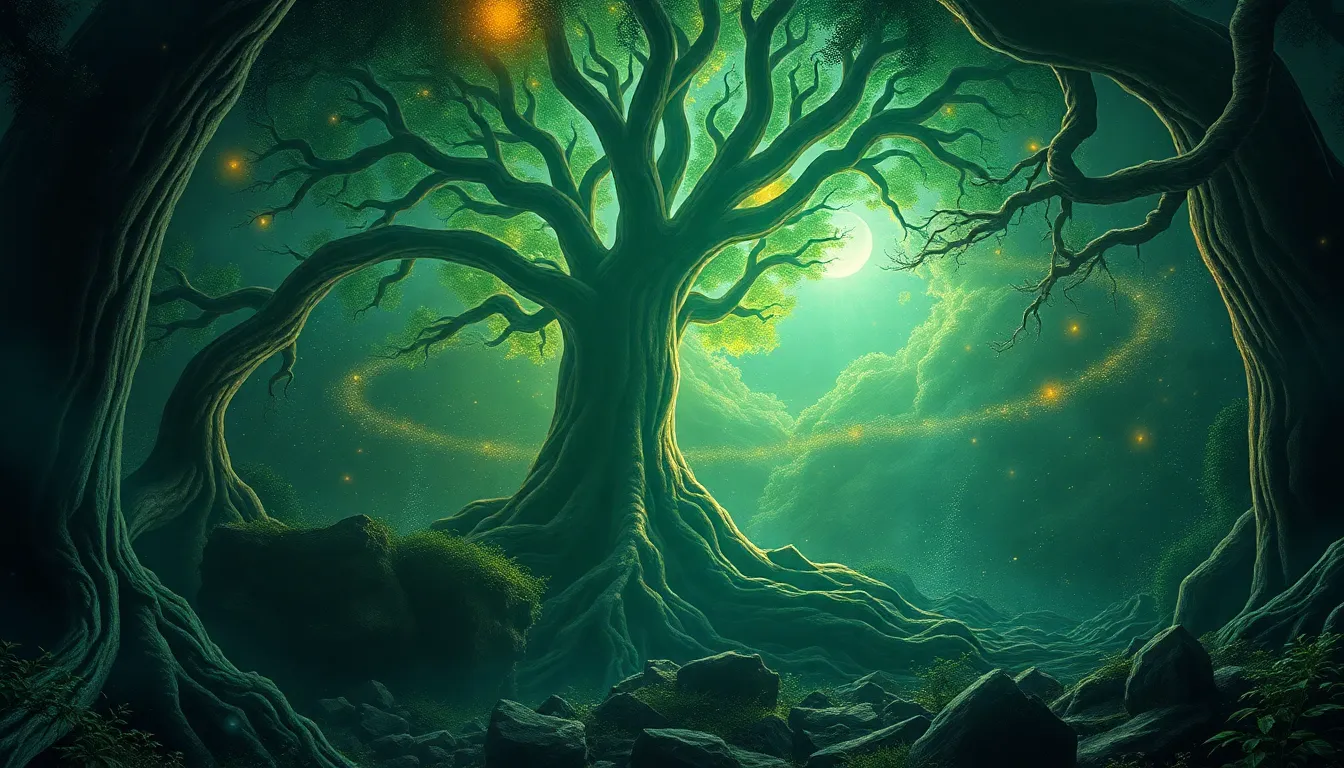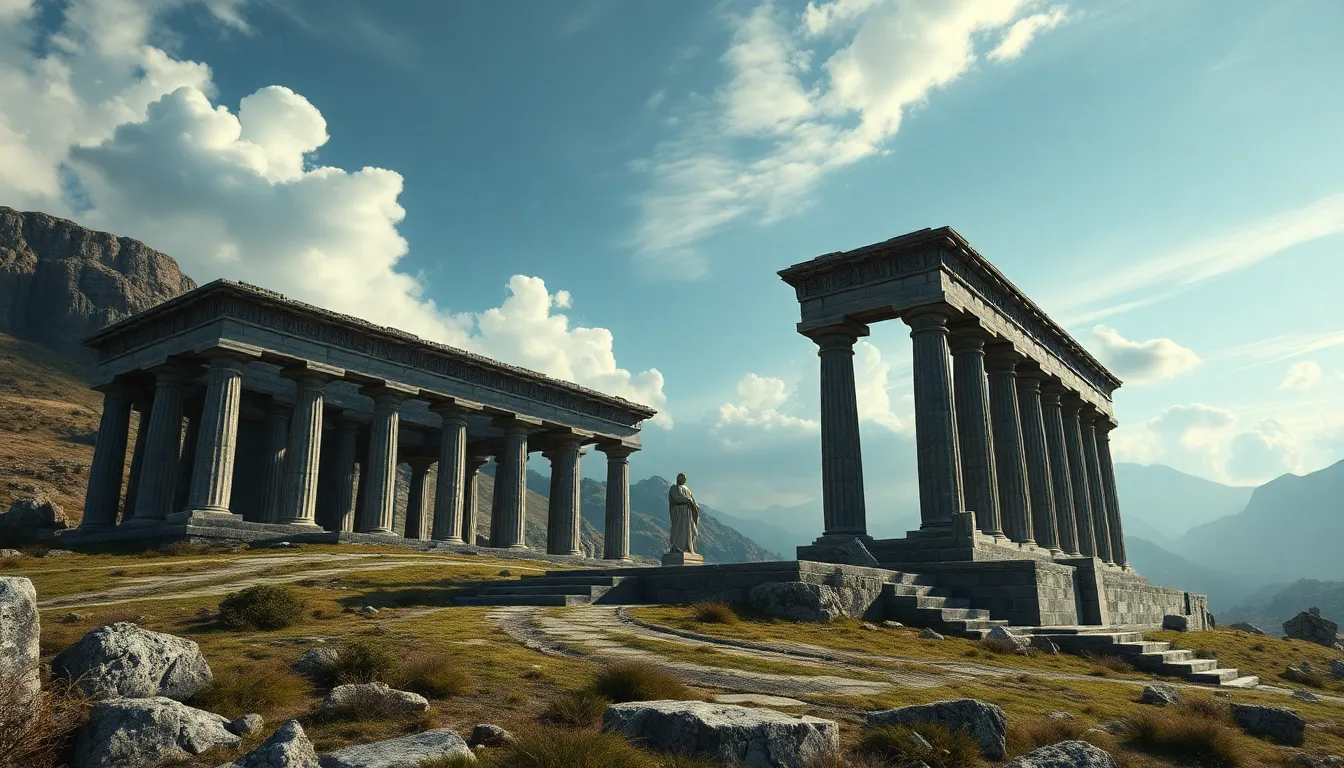The Mythical Roots: How Creation Stories Ground Us
Introduction: The Significance of Creation Stories
Creation stories are foundational narratives that explain the origins of the world, humanity, and the universe itself. They serve as a lens through which cultures interpret their existence and their place in the cosmos. Across various societies, these myths are not merely tales of beginnings; they are integral to cultural identity, community cohesion, and the transmission of values.
From the ancient Sumerians to the Indigenous peoples of North America, the universal presence of creation myths highlights a shared human curiosity about existence. This article aims to explore the profound impact creation stories have on individual and collective identities, examining how they ground us in our cultural narratives and communal bonds.
Defining Creation Myths: More Than Just Stories
Creation myths are narratives that seek to explain the origins of the world and its inhabitants. They serve multiple functions, including:
- Providing explanations for natural phenomena.
- Establishing a framework for moral and ethical behavior.
- Offering a sense of belonging and identity within a community.
It is essential to differentiate between myths, legends, and folklore. Myths typically deal with divine beings and the creation of the world, while legends may involve historical figures and events, and folklore encompasses traditional tales that often convey moral lessons or cultural values. Some well-known creation stories include:
- The Genesis creation narrative in the Judeo-Christian tradition.
- The Hindu creation myth involving Brahma, Vishnu, and Shiva.
- The Maori creation story featuring the separation of Rangi (Sky) and Papa (Earth).
Cultural Reflection: How Creation Stories Mirror Societal Values
Creation myths often reflect the moral and ethical values of the societies from which they originate. For instance, the story of Gaia in Greek mythology emphasizes harmony with nature, while the Christian Genesis promotes stewardship of the Earth. These narratives encapsulate societal values and provide insight into the cultural psyche.
Case studies reveal specific social implications:
- The Native American creation stories often highlight respect for nature and interdependence, reflecting the values of sustainability and community.
- In ancient Egyptian mythology, the creation story of Atum emphasizes order and chaos, mirroring the societal emphasis on stability and governance.
Symbolism plays a crucial role in conveying these beliefs, as elements within the stories often represent deeper truths about the culture’s worldview.
The Psychological Importance of Creation Stories
Carl Jung’s theories on archetypes and the collective unconscious provide a framework for understanding the psychological significance of creation myths. Jung posited that these stories tap into universal symbols that resonate within the human psyche, shaping both personal and collective identities.
Creation myths help individuals navigate existential questions such as:
- Where do we come from?
- What is our purpose?
- How do we relate to the world around us?
By engaging with these narratives, individuals often find a sense of belonging to something larger than themselves, fostering a connection to their community and heritage.
Creation Myths and Community Bonding
Storytelling is a vital practice that builds community and shared beliefs. Creation stories are frequently employed in rituals and traditions, serving to strengthen social ties and reinforce cultural values. These narratives are often recounted during significant ceremonies, including:
- Seasonal festivals that celebrate agricultural cycles.
- Rites of passage that mark transitions in life.
- Religious ceremonies that reaffirm community faith and identity.
Examples of ceremonies centered around creation myths can be found in various cultures, such as the Kachina ceremonies of the Hopi people, which celebrate the creation of life and the interconnectedness of all beings.
The Evolution of Creation Myths in the Modern World
In contemporary society, interpretations of ancient myths often evolve, reflecting changing cultural landscapes. Globalization and technology have significantly impacted the transmission of creation stories, allowing for a blend of narratives across cultures. This cross-pollination can lead to:
- New interpretations and adaptations of classic myths.
- A resurgence of interest in indigenous and local creation narratives.
- Increased dialogue about cultural heritage and identity.
As society grapples with modern challenges, these ancient narratives provide wisdom and guidance, often reimagined to meet contemporary needs.
Creation Myths in Literature and Popular Culture
Creation stories have permeated literature, film, and art, influencing modern creators who reinterpret traditional myths. Examples include:
- The reinterpretation of the Prometheus myth in Mary Shelley’s “Frankenstein.”
- The exploration of creation themes in films like “The Matrix” and “Inception.”
- Artistic representations of creation myths in visual arts, such as in the works of Frida Kahlo.
These reinterpretations impact cultural understanding, often prompting discussions about identity, morality, and existence.
Controversies and Critiques: Creation Myths in a Scientific Age
The tension between scientific explanations and mythological narratives raises questions about the coexistence of these perspectives. Creation myths and scientific theories can inform one another in meaningful ways:
- Many view creation stories as metaphorical rather than literal explanations of origins.
- There is value in understanding the cultural significance of these narratives alongside scientific theories like evolution.
- Respect for diverse belief systems is essential in a pluralistic society, fostering dialogue rather than division.
Personal Reflections: Engaging with Creation Stories Today
Engaging with creation stories can enhance personal and communal identity. Readers are encouraged to explore their cultural myths, reflecting on how these narratives shape their understanding of the world. Here are some exercises to facilitate this exploration:
- Identify a creation myth from your culture or heritage and share it with someone.
- Reflect on the values and lessons conveyed in the myth.
- Create your own narrative that blends elements of traditional myths with your personal experiences.
Conclusion: The Enduring Power of Creation Stories
Creation stories continue to resonate through generations, providing insight into our origins, values, and shared humanity. They ground us in our cultural identities, foster community bonds, and offer frameworks for understanding our place in the universe. As we navigate an ever-changing world, these narratives remain a vital part of our collective consciousness.



